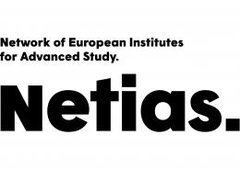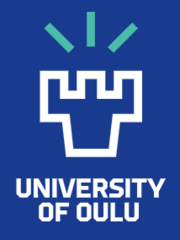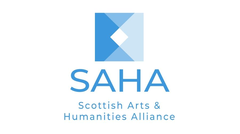List of members

Masaryk University
Founded in 1919, shortly after the establishment of independent Czechoslovakia, Masaryk University and its academic community have significantly contributed to the development of free and democratic Czechoslovakia.
Its activities are rooted in and guided by the values of respect, freedom and responsibility.
Today, Masaryk University with its highly international and dynamic environment, continues in the esteemed tradition of playing significant roles across all three main domains of higher education institutions – education, excellent research, and societal contribution and service to the community. The university comprises ten faculties and two research institutes, employing over seven thousand employees, and offers over 150 study programmes, with 20 per cent of these taught in English. It educates 33,000 students, including 7,000 from abroad, who all enjoy studying in Brno – one of the most popular student cities in the world.
It continuously improves its standings in international university rankings and, in the 2023 QS Sustainability Rankings, it was placed as the best of all Czech higher education institutions. Principles of sustainable development are integral to the university’s culture.
Masaryk University is dedicated to educating future leaders and stands as a leader and trendsetter in education, research, and culture. As a dynamic, growing and socially responsible higher education institution, it also prides itself on being a responsible and attractive employer, earnestly upholding principles of transparency, equality and non-discrimination. The university supports its employees in achieving their professional goals while also promoting a healthy a work-life balance.
Contact info
Petr Suchý, Ph.D.
Vice-rector for Internationalization
Rectorate
Masaryk University
T: +549498126

Net4Society
Within Horizon Europe, there are so-called National Contact Points (NCPs) – dedicated research consulting bureaus – which provide support and guidance in preparing proposals and project realisation. The EU funded project “Net4Society” is the international network of National Contact Points for Cluster 2, “Culture, Creativity and Inclusive Society”.
The main goal of Net4Society is both to improve the quality of consulting and to support researchers in submitting successful proposals in this funding area as well as to increase the visibility of SSH research. National Contact Points are available to applicants in all EU member states and many other countries. They provide individual guidance and support in the application for European research funding for free.
Net4Society was originally founded in 2008 during the 7th European Research Framework Programme (FP7, 2007-2013) as the network of National Contact Points for Socio-Economic Sciences and the Humanities (SSH). Since 2008, Net4Society has been increasing the quality of consulting in the field of social sciences and humanities and currently for SC6, through capacity building and networking measures. Currently, over 80 NCPs in 59 countries in Europe and beyond are part of the network.
Contact info
Net4Society coordination office
German Aerospace Center - Project Management Agency
Nina Braun, Project Coordinator

NetIAS – Network of European Institutes for Advanced Study
The Network brings together 25 Institutes for Advanced Study across Europe. It was created in 2004 to stimulate a dialogue on IAS practices and possible forms of cooperation. Within the whole network, more than 500 researchers are hosted every year for up to one full academic year.
NetIAS members share the objective of creating international and multidisciplinary learning communities. This openness and the freedom the fellows enjoy for their researches serve to promote scientific and intellectual exchanges. The fellows are released from their usual teaching and research obligations and pursue their project in a privileged environment, that stimulates reflexion and innovation. IAS tend to break from the intellectual routines, thus fostering the emergence of new perspectives, approaches and paradigms.
While sharing a common vision concerning the freedom of research, and representing an alternative to the national institutions of higher education and research, the IAS offer a considerable diversity in terms of fellowship conditions: individual or collective fellowships; invitations or open calls for applications; one academic year residencies or shorter periods. Furthermore, their scientific policies are characterized by different thematic or geographical orientations, a diverse openness to natural and hard sciences, or a special commitment to promoting early career researchers.
Contact info
President of the Network Nadia Al-Bagdadi
office: Agnes Bendik
Mylène Trouvé
T: +33 (0)1 49 54 21 49
At the RFIEA Foundation
190 avenue de France
75013 Paris - FRANCE

NORCE
NORCE is an independent research institute that conducts research for both public and private sectors, to facilitate informed and sustainable choices for the future.
NORCE delivers research and innovation in energy, health care, climate, the environment, society and technology. Solutions address key challenges for society and contribute to value creation on the local, national and global levels. NORCE contributes to the adaptation of industry and business – in conjunction with businesses and universities, clusters and centres.
In addition, NORCE has an important role in research-based renewal of the public sector. We are represented throughout Norway. Our large local presence enables close collaboration with unique centres of excellence, as well as the business community and public authorities. This is all beneficial to research. NORCE is also represented in Brussels with an EU-office. The Head of Office is Sumathi Subramaniam.
Contact info
Tobias Bade Strøm
EU Strategy Adviser

Norwegian University of Science and Technology – NTNU
NTNU is an international oriented university with headquarters in Trondheim and campuses in Gjøvik and Ålesund.
NTNU has a main profile in science and technology, a variety of programmes of professional study, and great academic breadth that also includes the humanities, social sciences, economics, medicine, health sciences, educational science, architecture, entrepreneurship, art disciplines and artistic activities.
NTNU has five strategic research areas: Civil security, Ocean & Coast, Community, Energy, and Health & Life science.
Contact info
Prof. Hans Petter Ulleberg, Vice Dean for Research, Faculty of Social and Educational Sciences

OPERAS
OPERAS is a distributed Research Infrastructure (RI) for open scholarly communication in the European Research Area for Social Sciences and Humanities (SSH). Its mission is to coordinate and federate resources in Europe to efficiently address the scholarly communication needs of European researchers in the field of SSH.
OPERAS' aim is to make Open Science a reality for research in the SSH and achieve a scholarly communication system where knowledge produced in the SSH benefits researchers, academics, students and more generally the whole society across Europe and worldwide, without barriers.
Contact info
Suzanne Dumouchel
OPERAS Co-coordinator
CNRS

Oulu University
The University of Oulu is an international science university that creates new knowledge, well-being and innovations for the future through research and education. The University of Oulu, founded in 1958, is one of the largest and most multidisciplinary universities in Finland.
Our educational mission is to provide higher education based on research, and to educate youth to serve society and humanity. The overall aim is to further improve the quantitative and qualitative results and impact of education.
Contact info
Main contact point
jouni-Matti Kukkanen
Professor in Philosophy
Department of History of Sciences and Ideas Research Director
The Eudaimonia Institute for the Human Sciences

Research Centre of the Slovenian Academy of Sciences and Arts (ZRC SAZU)
The Research Centre of the Slovenian Academy of Sciences and Arts is the leading Slovenian research institution. It has a multidisciplinary character; in addition to the humanities, its spheres of research also cover the natural and social sciences. It consists of 18 research institutes throughout the country and has more than 350 employees, roughly 300 of whom are researchers.
ZRC SAZU conducts basic research across a range of fields, included natural, earth, and spatial sciences (palaeontology, geology, biology, zoology, botany, karst sciences, geomorphology, natural risks, hydrology, climatology, environmental protection, earth observation, and geographical information systems), and the social sciences and humanities (demography, sociomedicine, anthropology, geography, philosophy, aesthetics, ethnomusicology, musicology, ethnology, linguistics, digital humanities, literary studies, archaeology, history, cultural history, art history, and dialectology.
ZRC SAZU has its own publishing house and bookstore. The ZRC Publishing House publishes more than 50 book series ranging from the strictly scientific to works of general interest and nonfiction, and many scientific journals.
Contact info
Dr. Mimi Urbanc
Namestnica direktorja / Deputy Director
ZRC SAZU
Novi trg 2, 1001 Ljubljana, Slovenija
T: +386 1 470 63 54

SAGE Publishing (Associate Member)
Sage is a global academic publisher of books, journals, and library resources with a growing range of technologies to enable discovery, access, and engagement. Believing that research and education are critical in shaping society, 24-year-old Sara Miller McCune founded Sage in 1965.
Today, we are controlled by a group of trustees charged with maintaining our independence and mission indefinitely.
Our guaranteed independence means we're:
Free to do more: Supporting an equitable academic future, furthering disciplines that drive social change, and helping social and behavioral science make an impact.
Free to work together: Building lasting relationships, championing diverse perspectives, and co-creating resources to transform teaching and learning.
Free to think long term: Experimenting, taking risks, and investing in new ideas.
Contact info
Chris Burnage
Communications Manager
SAGE Publishing

Scottish Art and Humanities Alliance
The Scottish Arts and Humanities Alliance (SAHA) was established in 2019 to give a public and collective voice to the arts and humanities in the context of Higher Education.
Scotland has a rich arts and humanities heritage and an impressive history of arts and humanities education. We believe that the arts and humanities are a public good with a central role to play in meeting the challenges of contemporary society.
SAHA is uniquely positioned to give voice to the value and diversity of Arts and Humanities education in Scotland and to foster further collaboration across and beyond institutions in order to provide a coherent perspective on the challenges facing Scottish society.
SAHA works in the context of SHAPE, STEAM and internationally with partners in the Irish, European and North American Humanities alliances. The Alliance aims to enhance public and governmental understanding of the intellectual, creative and social, as well as economic, contribution of the arts and humanities to the well-being and advancement of Scottish society.
The Alliance has the following remit:
To be a united, public voice on matters relating to the arts and humanities in Scotland. To advocate for the arts and humanities, enhancing understanding of their intellectual, creative, and social as well as economic, contribution to the wellbeing and advancement of Scottish society. To influence government policy on current higher educational issues relating to the arts and humanities, giving a Scottish perspective, but also speaking to wider debates. To create, foster and enhance links and partnerships between scholars and local communities and communities of practice. To disseminate its work in the media, in government and within the education sector.Contact info
Catherine O'Leary